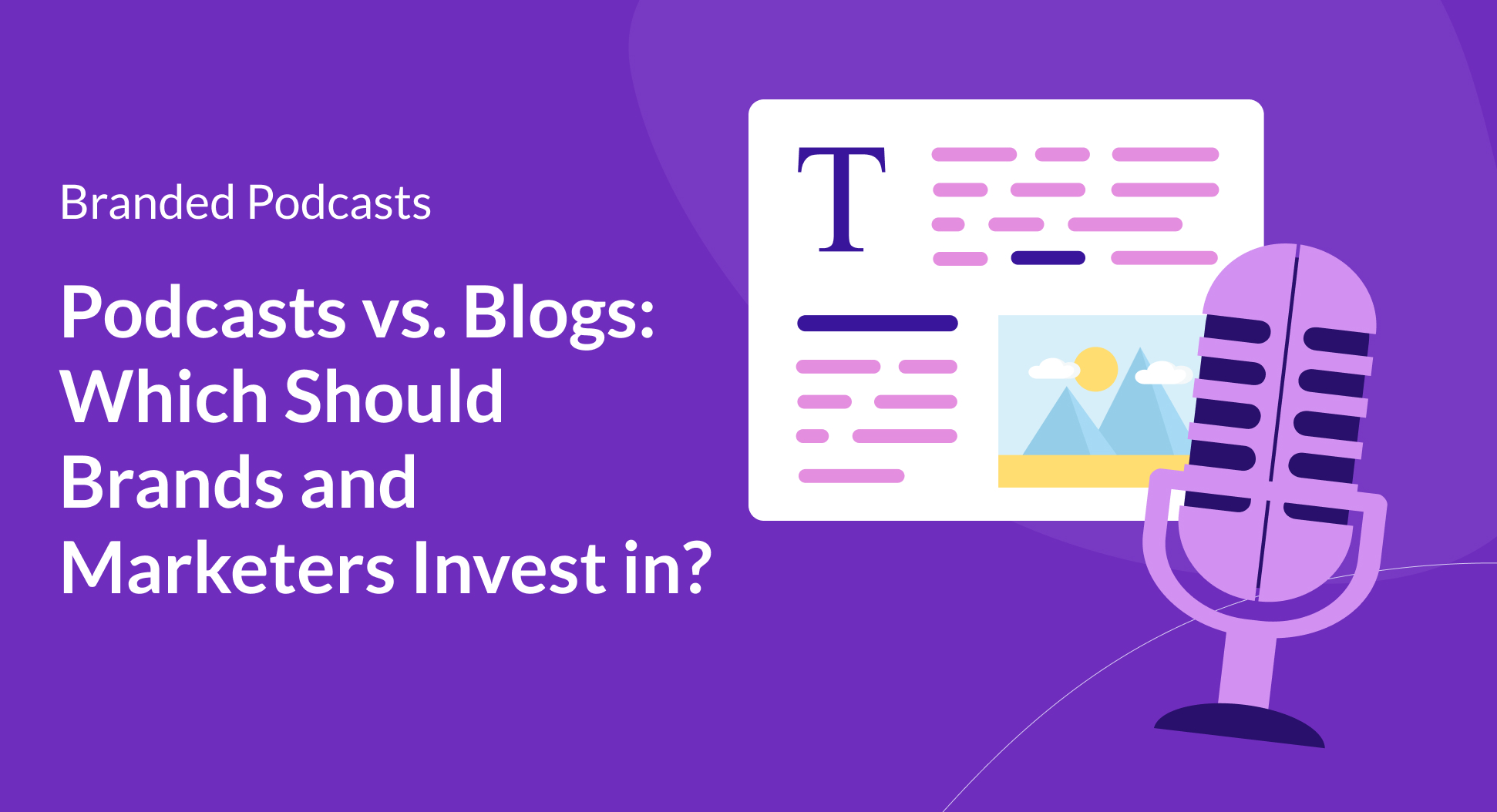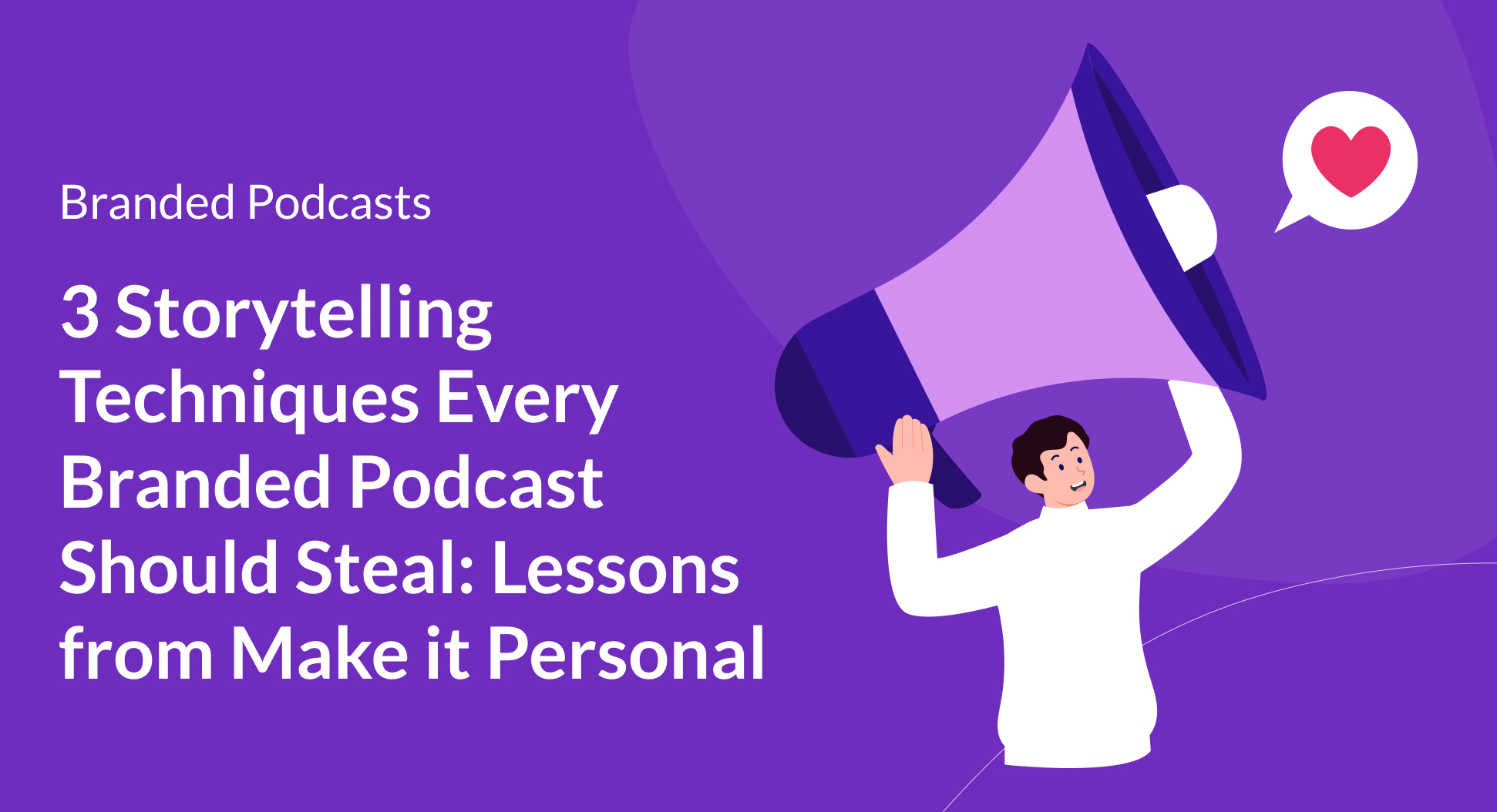Contents
One of the most common questions we get asked as a podcast agency is “How do we let our audience know our show exists?”
One of the best ways to do this is through SEO optimization.
If your podcast is SEO-optimized, when people are searching for your podcast, specific episodes, or even general topics that your series covers, you’ll be near the top of the search results on Google and listening apps.
This is incredibly important since creating an engaging branded podcast won’t move the dial if it doesn’t get in front of the right people.
What is podcast SEO?
While podcast SEO may be a new term for you, you’ve likely heard of SEO before.
Traditional website SEO is the process of improving your visibility through relevant searches. Podcast SEO follows the same approach, but caters specifically to audio content.
In particular, podcast SEO includes optimizing episode titles, show descriptions, show notes, episode descriptions, and more for your show’s target keywords – much like you would optimize your website for your brand’s target keywords.
Podcast directories, like Spotify and Apple Podcasts, use this information to categorize and recommend content to listeners.
Because podcast SEO and website SEO influence each other, you’ll want to follow the best practices for both to increase your branded podcast’s discoverability and visibility across listening apps and search engines.
What are podcast keywords?
We’ll be mentioning podcast keywords quite a bit in this article because they’re essentially the backbone of your show’s SEO.
These are words or phrases that describe your podcast series or individual episodes. They help people discover your show via search engines and podcast apps alike.
Here are a few different types of podcast keywords:
Series or brand keywords include the name of your podcast or your brand.
Genre keywords are related to the genre, category, or format of your series, like “interviews,” “technology,” or “AI.”
Episode keywords are specific to the episode’s topic or guest.
Host keywords help you build your host’s personal brand or leverage their existing brand.
Guest keywords center on the guest that you have in each episode. These can include their brand name, an event they're known for, their own name, etc;
To help you find the best keywords for your show, we suggest using an SEO tool like SEMRush or Moz. These sites provide insights like search volume, keyword difficulty, your current ranking, and much more.
Ultimately, you’ll want to optimize for keywords with high search volume and low competition. In other words, lots of people are searching for these keywords, but not many podcasts in your niche are bidding on them.
Now that you have a good understanding of what podcast SEO and keywords are, let’s dive into some of the ways you can help improve your podcast’s search results. We’re going to dive into each one and break down how you can implement it into your podcast strategy.
1. Google feature snippet
While podcast discoverability can be tough, there are usually a good number of people searching for specific podcast niches in Google.

Ideally, you’ll want your podcast to be included in the feature snippet for terms like "Best [Category] Podcast."
For example, The Long Game works into a few categories like "content marketing podcasts," "marketing podcasts," and "SEO podcasts." So they used the Surround Sound Strategy to get listed in as many listicles ranking for these terms as possible all while creating their own content for target keywords.
2. Podcast descriptions
There are two different types of podcast descriptions: a series description and episode descriptions.
Series description
A series description is a short paragraph that breaks down what your podcast is about, who it’s hosted by, and when listeners can tune in. These descriptions are what will be paired with your podcast icon on all listening platforms.
For example, here’s what the series description for The Tim Ferriss Show looks like:

Episode descriptions
An episode description is pretty self-explanatory. It’s a short paragraph that describes what a specific episode is about and who listeners will be hearing from. You’ll want to make sure these are informative but also catchy and skimmable.
Here’s an example of an episode description from episode #732 of The Tim Ferriss Show:

Optimizing podcast descriptions for SEO
SEO efforts for podcast descriptions all come down to those podcast keywords we mentioned earlier.
For the series description, identify a couple of keywords that relate to the overall topic of the podcast. For episode descriptions, do the same thing but for the specific topics of the episode.
We recommend only using a few keywords in your descriptions since you don’t want to “keyword stuff”, which is when you stuff your copy with a massive amount of keywords to try to boost your SEO. Search engines and listening apps alike don’t like keyword stuffing, so it can actually end up having the opposite effect on searchability.
3. Podcast show notes
Next up are your podcast show notes. Podcast show notes give you the opportunity to add more in-depth information about a podcast episode. This can include things like guest information, time codes, resources mentioned in the episode, CTAs, etc.
SEO for your show notes comes down to keywords and formatting.
Similar to descriptions, identify high-performing keywords to add to your podcast show notes and format the content with headers, bullet points, and different font options (bolding, italicizing, underlining, etc.) to make them easy to read and boost your SEO.
4. Podcast transcriptions
Podcast transcriptions are a fully written version of your podcast, split up into headers, speakers, sections, and more.
They’re useful for a variety of reasons, including increasing accessibility, catering to different consumption preferences, and of course, boosting SEO.
Because podcast transcripts are essentially just a written version of your episode, they’ll naturally include a lot of your episode-specific podcast keywords. You’ll want to add these to your website, link them in your show notes, and even repurpose them into complimentary blog posts or downloadables.
We’re not going to lie, transcribing can take a lot of time. Thankfully, there are a lot of podcast transcription tools on the market. Here are some we suggest:
5. Blog posts
Now let’s get into blog writing. We all know that blogs are great for SEO through content focus, keywords, formatting, headers, and more.
Your blog posts should serve as additional content pieces focused on topics covered in the podcast, possibly even a deep dive into conversations that you’ve already had.
We recommend having one blog accompany each episode you release. This means you’ll have three content pieces with every episode: Podcast, transcription, and a blog.
For example, Nancy Twine of Makers Mindset does a wonderful job of complimenting each podcast episode with a blog post. Within each article, she highlights the top takeaways from each episode, expands on points of interest, and even embeds the episode for a seamless consumption experience.

6. Podcast websites
Let’s take a look at podcast websites. Beyond SEO, having a website for your series is super valuable for a number of reasons. Here are just a few:
- Centralize all your podcast-related content: A website serves as a hub for all your podcast episodes, show notes, transcripts, and related content. This makes it easier for your audience to access and explore all your podcast offerings in one convenient place.
- Increased visibility: Having a website boosts your podcast's online presence and visibility. It allows you to leverage web traffic and capture new listeners who might not find your show on traditional podcast directories.
- Audience engagement: Your website enables better engagement with your audience through comments, newsletter sign-ups, and social media CTAs. It helps build a community around your podcast, fostering loyalty and repeat listenership.
When it comes to podcast websites, you can create a new site from scratch that’s entirely dedicated to your show or you can add a dedicated podcast landing page to your brand’s existing site. This is a great option if you’re looking to leverage your existing audience and web traffic.
Some podcast hosting platforms can create a custom podcast website for you, like CoHost. However, you can also look into creating your own website on the Wordpresses and Squarespaces of the world for greater flexibility.
Here are a few stand-out examples of podcast websites and landing pages:

Not Just Fluff by Banfield Pet Hospital

Powering Travel by Expedia Group

Fissionary by Nuclear Energy Institute
Are you ready to optimize your podcast’s SEO?
Much like podcasting itself, podcast SEO is a long game.
Even if you were to implement all of these tactics tomorrow, it would still take search engines and listening apps time to index all of your content. But if you keep consistent, continually monitor your target keywords, and track your performance monthly (or bi-monthly), you’ll be able to see measurable results over time.
To learn more about branded podcast SEO, get in touch with Quill’s team of podcast experts.




.jpg)




.png)

.png)




.png)
.png)
.png)
.png)